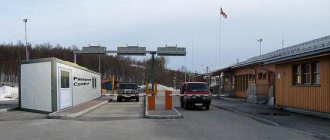According to Federal Law dated July 31, 2020 N 289-FZ “On Amendments to the Federal Law “On Insolvency (Bankruptcy)” and certain legislative acts of the Russian Federation regarding the extrajudicial bankruptcy of a citizen,” from September 1, 2021, the extrajudicial procedure for declaring a citizen bankrupt will come into effect. (now there is only a judicial procedure). An individual can submit an application to the MFC to declare him bankrupt if: the total amount of unfulfilled monetary obligations ranges from 50,000 to 500,000 rubles. As of the date of filing the application, no other enforcement proceedings have been initiated against him in connection with the return of the writ of execution to the claimant. The citizen’s lack of property, which could be available after covering the costs of the procedure applied in the citizen’s bankruptcy case, aimed at satisfying the claims of creditors, does not prevent the introduction of a procedure for the sale of the citizen’s property. Consideration of an application to declare a citizen bankrupt out of court in a multifunctional center for the provision of state and municipal services is carried out without charging a fee. During the period of the extrajudicial bankruptcy procedure, a citizen does not have the right to enter into transactions for obtaining loans, credits, issuing guarantees and other security transactions. After six months from the date of inclusion of information in the Unified Federal Register of Bankruptcy Information (inclusion of information in the Unified Federal Register of Bankruptcy Information is carried out without charging a fee), the extrajudicial bankruptcy procedure of a citizen is completed and such citizen is released from further execution of creditors’ claims. The release of a citizen from obligations does not apply to some of the claims of creditors (for example, harm caused to life and health, wages, etc.). A citizen has the right to file an application for declaring him bankrupt out of court again no earlier than ten years after the day the extrajudicial bankruptcy procedure was terminated or the day it was completed.
Consultation point for the protection of consumer rights of the branch of the FBUZ "Center for Hygiene and Epidemiology in the Kirov Region" in the Sovetsky district, Sovetsk, Kirov region, st. Kirova 1, t. (883375) 22202, email This email address is being protected from spambots. You must have JavaScript enabled to view it.
A new Law on customs regulation in the Russian Federation has been adopted
The subject of regulation of the Federal Law of August 3, 2018 N 289-FZ “On customs regulation in the Russian Federation and on amendments to certain legislative acts of the Russian Federation” are:
- relations related to the import and export of goods, their transportation across the territory of the Russian Federation under customs control, temporary storage, customs declaration, release and use in accordance with customs procedures, customs control, collection and payment of customs duties, special, anti-dumping, countervailing duties;
- determination of the rights and obligations of persons operating in the field of customs;
- establishing the legal and organizational framework for the activities of the customs authorities of the Russian Federation;
- regulation of power relations between customs authorities and persons exercising the rights of ownership, use and disposal of goods imported into the Russian Federation and goods exported from the Russian Federation;
- regulation of relations related to the introduction of a ban on the circulation of certain categories of goods in the Russian Federation. Customs regulation consists of establishing the procedure and rules for regulating customs affairs in the Russian Federation. Customs business is a set of methods and means of ensuring compliance with the procedure and conditions for the import and export of goods, their location and use in the Russian Federation or abroad, the procedure for performing customs operations, the procedure for calculating, paying, collecting and ensuring customs duties, special, anti-dumping, countervailing duties , the procedure for carrying out customs control, the procedure for complying with prohibitions and restrictions established in accordance with the law of the Union and (or) the legislation of the Russian Federation, as well as ensuring the implementation of power relations between customs authorities and persons exercising the rights of ownership, use and (or) disposal of goods.
The new Law replaces the current Federal Law of November 27, 2010 N 311-FZ “On customs regulation in the Russian Federation”. Most of the articles of the new Law will come into force on September 4, 2021, but a number of provisions will come into force at a later date. The new Law establishes a number of transitional provisions. The law was developed in connection with the adoption and entry into force on January 1, 2021 of the Customs Code of the Eurasian Economic Union (EAEU Customs Code), which is an annex to the Treaty on the EAEU Customs Code. The EAEU Labor Code contains reference norms, according to which the regulation of a number of legal relations or the establishment of additional conditions, requirements or features of regulatory legal regulation should be determined at the level of national legislation of the EAEU member states. The purpose of the Law is to establish the specifics of customs regulation in the Russian Federation in accordance with the provisions of the EAEU law. When preparing the Law, the provisions of the Federal Law of November 27, 2010 N 311-FZ “On Customs Regulation in the Russian Federation” were taken as a basis to the extent permitted by the EAEU Customs Code. The Law implements a significant part of the reference norms of the EAEU Customs Code, aimed at improving customs administration, as well as simplifying customs operations.
We also recommend that you read the following materials:
- Comparison of the provisions of the Customs Code of the Customs Union and the EAEU Labor Code
This document is located in the “Legal Assistant” system. You can buy the legal information system for lawyers “Code: Legal Assistant” by ordering a free demonstration in your office. Call by phone. Contact person: Zorina Ekaterina
Non-tariff regulation
Non-tariff regulation serves to protect domestic producers from foreign competition, with sharply increased imports of goods, as well as with the import of imported goods at reduced, dumping prices. Non-tariff regulatory measures are used to control the export of products, for example, to limit the export of goods to stimulate the manufacturing industry. These measures are used to maintain a balance between supply and demand, as well as to stabilize prices for goods using restrictive and prohibitive methods. Non-tariff regulatory measures are used to protect the market from low-quality goods that do not meet safety requirements.
Non-tariff regulation is a set of measures to control the import of goods (import) and export of goods (export), including permissive and prohibitive, restrictive measures.
Direct restriction measures
1) Quotas are a restriction on the quantity or value of imported (import quota) or exported (export quota) goods for a certain time.
Types of quotas:
- Global – establish the quantity of a specific product that can be imported;
- Seasonal – set a period of time for importing goods;
- Tariffs - establish the quantity of goods that can be imported at established tariffs or without paying any duty at all.
The size of quotas is set at the Government level.
2) Licensing is control over the import and export of specific goods through the issuance of licenses by competent authorities.
Licensing applies:
- for temporary restrictions on the import or export of goods;
- to control the import or export of dangerous goods that adversely affect the environment and humans;
- to grant an exclusive right;
- to fulfill international obligations.
Special protective measures
These measures serve to prevent damage to the economy due to sharply increased imports of goods or due to the import of goods at reduced, dumping prices. The following measures are used:
- Special duties – applied to sharply increased imports;
- Anti-dumping duty – applied when importing goods at dumping prices;
- Countervailing duties are applied when importing goods that have received a subsidy from a foreign country.
Technical regulation measures
These are measures to limit the import into the country of low-quality goods that do not comply with regulations: national and union. It is allowed to import only those goods for which a supporting document has been issued: Declaration or Certificate of Conformity.
Other regulatory measures
These are measures related to compliance with current legislation and ensuring the safety of the use of transported, imported or exported goods. Preventing threats to the life and health of citizens, as well as their property. They are regulated by the issuance of permits:
- Conclusion on the content of ozone-depleting substances (OZONKA)
- Phytosanitary certificate (FITCA)
- Veterinary certificate (VETERINARKA)
- Environmental certificate EURO-5
- Fire safety certificate
- Medical registration certificate of Roszdravnadzor (RZN)
- Expert opinion of Rospotrebnadzor
Protective duties are levied in addition to import customs duties. They can be introduced only for a certain period and according to a special Decision of the Russian Government. All prohibitions and restrictions are based on the legislative framework.
Customs tariff regulation
Customs tariff regulation of foreign trade activities is used to protect domestic producers from foreign competition and to replenish the budget through customs duty rates on imported and exported goods.
The main instrument of tariff regulation is the tariff. Methods of its application are established by law. Customs tariffs are the rates of customs duties applied to goods transported across the customs border of the EAEU. The size of rates is established by law, in accordance with the adopted Commodity Nomenclature for Foreign Economic Activity (TN FEA). Customs preferences are applied to goods originating from developing and least developed countries. In addition, preferences are provided for trade with countries included in the FTA.
In addition to determining the rates of customs duties on goods, the procedure for their application is established: determining the customs value of the goods, the country of origin of the goods.





